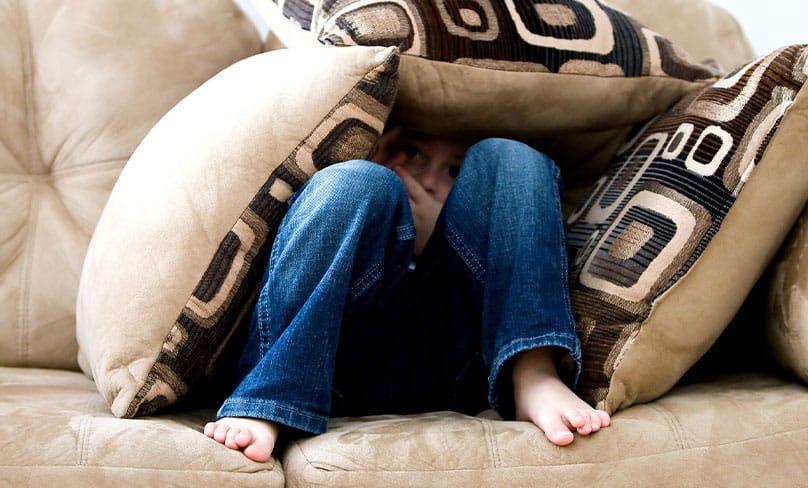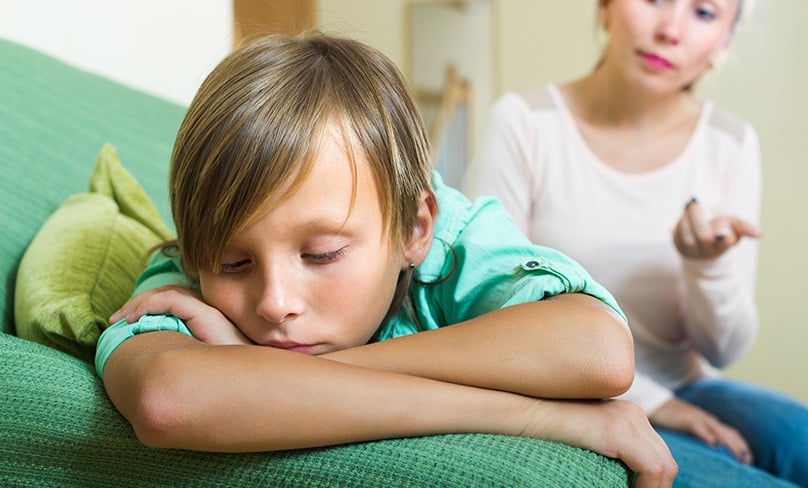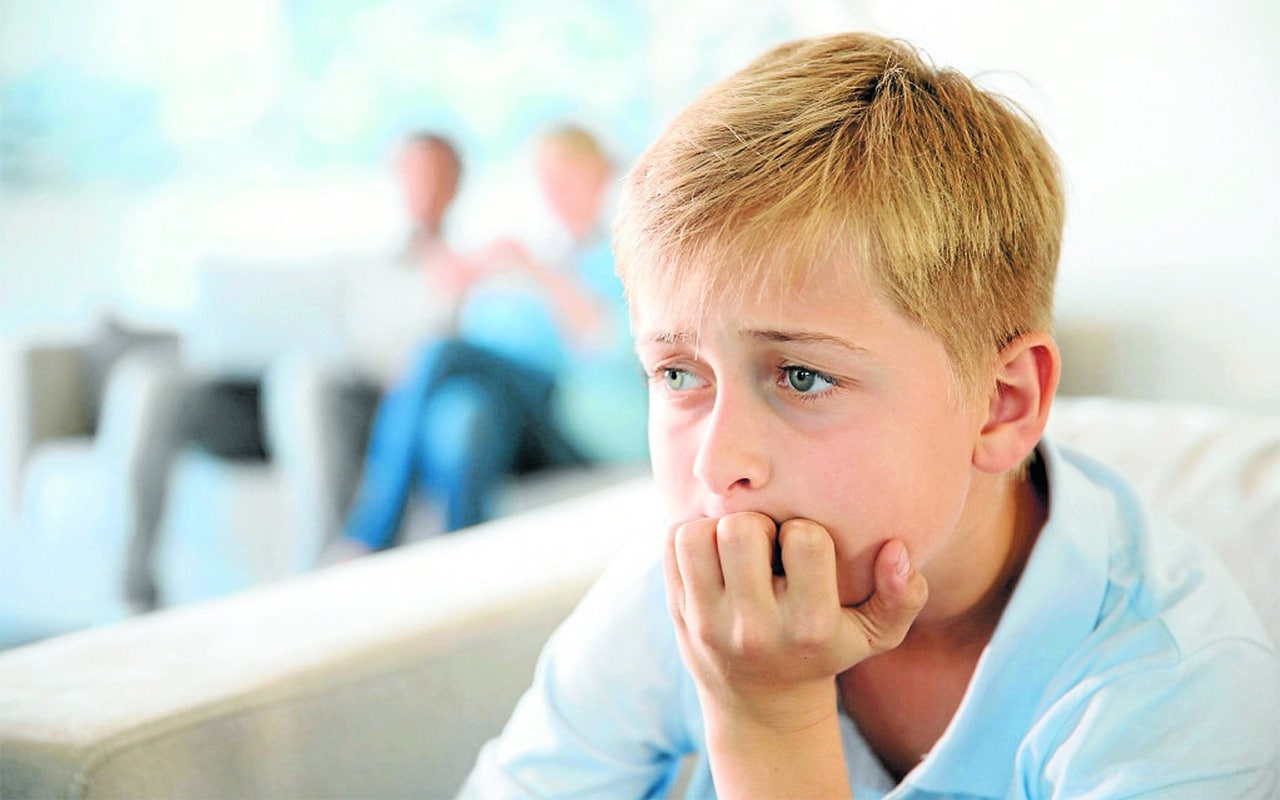
By Mike and Alicia Hernon
If there’s anything that trips parents up, it’s consequences for kids. Coming up with consequences, making sure they make sense and knowing when to give those consequences just brings about decision fatigue.
We consistently hear from parents who need ideas of what to do with their kids when a consequence is justified.
The thing is, when you have to constantly be creative in coming up with consequences for kids, you’ll run out of ideas and then struggle to follow through.
Of course, thoughtful and effective consequences are the product of planning and communication with your spouse. But to get a basis of what to include in a consequence and how to come up with them, we need a framework.
So let’s get into it!
“when you have to constantly be creative in coming up with consequences for kids, you’ll run out of ideas and then struggle to follow through.”
Types of Consequences
There’s a trend going on in the parenting world today that consequences for kids should always be either natural or logical, that they should fit the crime so to speak.
A logical consequence is an outcome imposed upon the child that as a result of something the child does and is related to the action.
A natural consequence is the natural outcome that results from something a child does.
Both natural and logical consequences make sense and have wisdom to them. But as a parent, they can be difficult to enact.
When it comes to natural consequences, you need to allow the entire scenario to play out, from the child choosing to do something to allowing the consequence of that action to take effect. The difficulty here is in allowing things to play out. It simply takes practice and discernment in deciding what you’ll allow and what you won’t.
This doesn’t work for something like walking into the road though. The natural consequence is too terrible to allow. So, here enters the logical consequence.
The child walks into the road and you remove them and give your chosen consequence. Logically, that could be that they have to hold your hand or be picked up or they have to go inside and are done playing outside. It’s related and directly correlated to the action.
In our opinion, logical and natural consequences are great for toddlers, but as children leave the toddler years and enter the preschool years, a shift needs to happen.

Consequences don’t always have to be logical
Logical consequences are the place where we hear the most requests for help. Parents continue to think that after the toddler years, all consequences need to fit the crime.
But that simply isn’t true.
Some consequences will continue to be logical. Staying out after curfew means that you can’t go out next time. It’s directly related to the infraction.
Things like disobedience or disrespect won’t always have a logical or natural consequence. What is logical when it comes to eye-rolling or talking back? Nothing really. But those actions still shouldn’t be tolerated and need to be addressed by more than a lecture or gentle correction.
In that scenario, provided the child understands that the behavior isn’t allowed in your home, the consequence needs immediate and consistent. So how do you decide what consequence to use?
“If you’re just getting started on making changes, you won’t be able to take on every single behavior right away. So pick the more disruptive behavior in each child.”
Choosing Consequences for Kids
First, sit down with your spouse and talk through the behaviors you’re observing in your children. Note the age and developmental stage of each child. The consequences for your 9-year-old will be dramatically different than those for your 2-year-old.
If you’re just getting started on making changes, you won’t be able to take on every single behavior right away. So pick the more disruptive behavior in each child. Then, brainstorm what type of consequence would be effective for that child.
Some ideas could be the removal of a privilege, removal of the child to their room or extra chores. What will work best depends on your child and their temperament. You know your child best and know what will be most effective.
Once you and your spouse have decided what consequence makes sense for your child, act on it. Be consistent and don’t back down.

Discipline: An Act of Love
When we discipline our kids, it can be difficult to remember that it should be an act of love. When our kids struggle with something, we need to teach and love, rather than punish.
So, we should set boundaries in moments of low stress. Communicate which behaviors aren’t acceptable and what the consequence will be. And when the moment inevitably comes that they test the boundary, we have to act immediately. They’re looking for us to be their guardrail, to help them learn what’s allowed.
It will take our kids time to learn, just like it took us time!
It’s so easy to get frustrated when our kids know that certain things aren’t allowed and they do them anyway. But how often do we go to confession and confess the same sins?
“Change takes time and lots of mercy. Our Lord is always consistent with us, so let’s show the same to our kids!”
We don’t know about you, but we’re usually confessing the same things. And we receive mercy every time!
We need to have that same perspective when it comes to our kids. Change takes time and lots of mercy. Our Lord is always consistent with us, so let’s show the same to our kids!
Still need some guidance when it comes to coming up with consequences for kids? Check out our free discipline guide where we help you talk through the process of discerning what your child needs and what consequences make sense!
You can also check out our most recent podcast episode on this topic right here.
First published on messyfamilyproject.org
